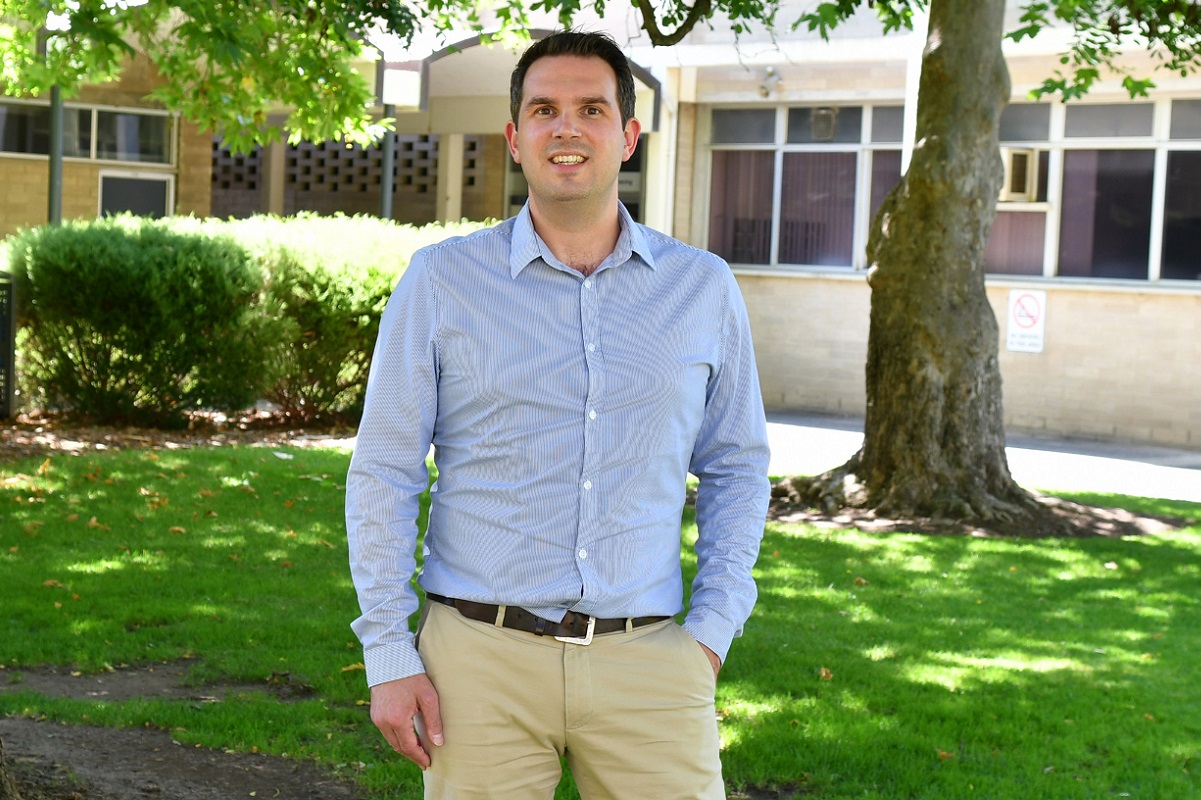
As a PhD student fresh from the Netherlands, Dr Bart Eijkelkamp was welcomed at Flinders and affectionately transformed into an Aussie – an experience that must have made an impact as he’s back, this time as a staff member, and settling in to his new role as microbiology lecturer and group leader of the Bacterial Host Adaptation Research Laboratory.
What made you decide to pursue a career in biological research?
I have always had a desire to understand how things work, particularly in the fields of human health and disease. After school it was clear to me that I wanted to work in a laboratory, but my field-specific interests developed throughout my university years. I completed a bachelor in Medical Microbiology and a masters in Biomolecular Sciences – both in the Netherlands, where I grew up. Various laboratory placements integral to my undergraduate degrees, in vastly distinct environments including pharmacy, diagnostics and research, helped me define that I wanted to do a PhD in Molecular Bacteriology and ultimately work in an academic institute.
After getting a taste of the Australian lifestyle through a research placement in Melbourne, I started a PhD at Flinders University in 2008.
What is your current research about?
Bacteria have always fascinated me. Their tremendous diversity and impact on nearly every biological process means they play a critical role in human health. Yet, exactly how bacteria interact with their host environment is still poorly understood. My research focuses on understanding how bacteria deal with a variety of immune-mediated stresses encountered during infection, and how they have the ability to subvert this. In particular, my laboratory focuses on how respiratory pathogens combat metal ion (such as zinc and copper) and fatty acid (like omega-3 fatty acids) stresses. We have shown that, in addition to their direct antimicrobial properties, these nutrients also impact antibiotic efficacy. This highlights the importance of appropriate nutrition in our fight against bacterial infections and antimicrobial resistance.
Can you share a challenging moment and how you overcame it?
Although we face daily challenges in molecular sciences, my move from the Netherlands to Australia as a PhD student was by far the biggest challenge. Becoming fully familiar with the language and cultural intricacies took longer than anticipated, and I found it very important to integrate with the locals. Fortunately, my PhD peers in the former School of Biological Sciences here at Flinders University were very welcoming and I managed to become quite ‘Aussie’ during my PhD candidature.
Can you describe a highlight of your career, or something that has made you proud ?
While working as a post-doctoral researcher at the University of Adelaide, I was very fortunate to receive independent research funding and a fellowship in consecutive years. This meant I could develop my own research program and later establish my own research group. I have always had a strong desire to run an independent research group and the first small pot of money paved the way to achieve this.
What does a ‘normal’ day could look like for you?
I’m an early riser and enjoy an early start at work. Most times this means responding to emails over a coffee before others arrive. I value a quick morning chat with each team member before going into meetings, discussing projects with collaborators, writing papers/grant proposals, or doing a bit of lab work. One of the most rewarding parts of the day is when we spend time brainstorming about our research projects between team members.
How do you like to wind down outside of work?
I have a passion for brewing craft beer (and drinking it). I started home brewing during my time as a PhD student, mostly to make a tight budget go a bit further. However, I soon discovered that culturing some distinct brewing organisms at home in addition to standard brewer’s yeast, such as lactobacillus, is a lot of fun and can create some interesting flavours.
If there is one piece of advice you could impart on future researchers, what would it be?
I recommend students take every opportunity to undertake training in different environments, as it provides you with more diverse skills and expertise. Due to the international nature of molecular sciences this also means you get opportunities to travel. I believe my research greatly benefits from collaborations with researchers that have diverse skills and expertise. Therefore, even now I continue to actively disseminate research projects and key findings to prospective collaborators outside my direct field of interest.

